Ha Long University successfully organized The First International Conference of Project “Prevention, Reduction and Recycling of Fishnet Pollution in Vietnamese Coastal Waters”
As a part of the implementation plan for the project “Prevention, Reduction and Recycling of Fishnet Pollution in Vietnamese Coastal Waters” (Abbreviated as REVFIN), from January 15-17, 2024, Ha Long University successfully organized the first International Conference.
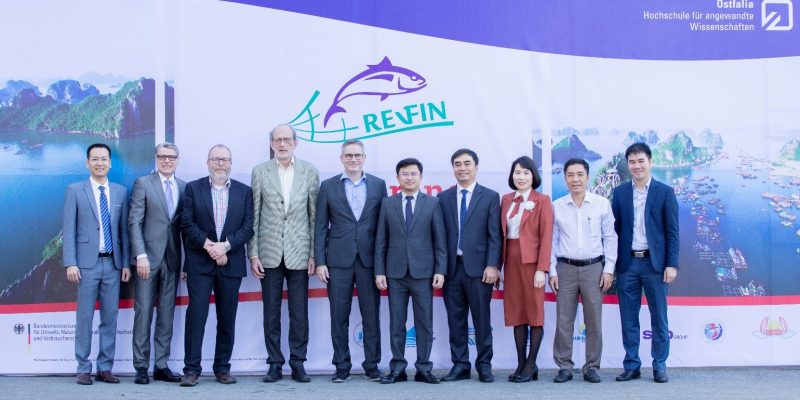
The Conference Organizing Committee took the photo with the Representatives
Attending the conference were representatives of the project coordinator in Germany – Ostfalia University and in Vietnam – Nha Trang University;
In addition, project members also attended the Conference, including the representatives of Kien Giang University (KGU), the Research Institute of Marine Fisheries (RIMF), the Vietnam Tuna Association (VINATUNA), Truong Phat Plastic Company (STP)…; From the host, representatives of Ha Long University were Rector Nguyen Duc Tiep and the Board of Directors, University Council, Heads of several units as well as project members.
Especially at the opening session, there was also the presence of Leaders and Specialists from the Department of Planning – Investment, Department of Natural Resources – Environment, Department of Finance, Department of Agriculture and Rural Development, Department of Science and Technology; Department of Fisheries, Farmers’ Association, Agricultural Extension Center; Representatives of some districts: Uong Bi and Quang Yen City, Van Don district and several businesses related to the field of fisheries and environment.
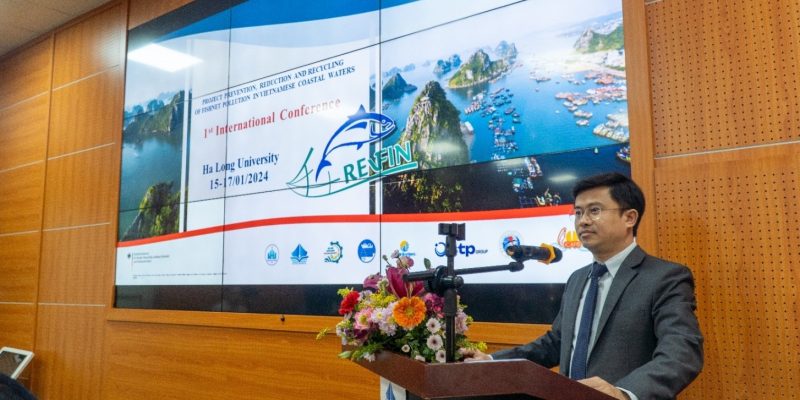
Dr. Nguyen Duc Tiep – Rector of Ha Long University delivered a welcome speech
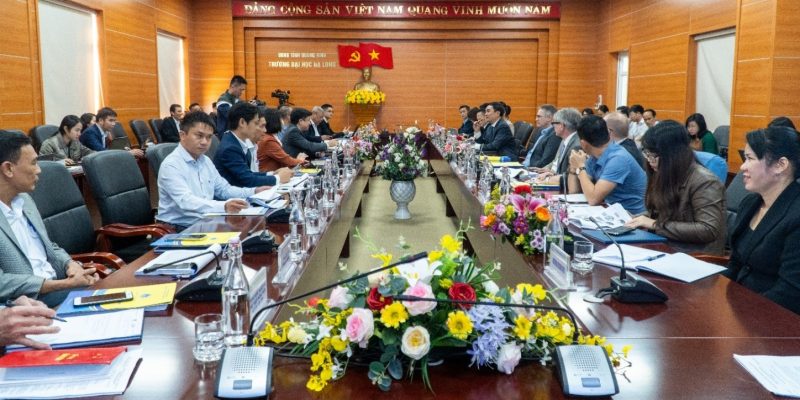
Roundtable Talk between related stakeholders
After three days with 5 serious and responsible working sessions, the conference has focused on 4 topics:
(1) Evaluating the current status of fishing gear waste in Vietnam’s sea waters through the social surveys focused on fishing gear waste released from fishermen and fishing companies in typical coastal areas of Vietnam such as Quang Ninh, Hai Phong, Khanh Hoa and Kien Giang.
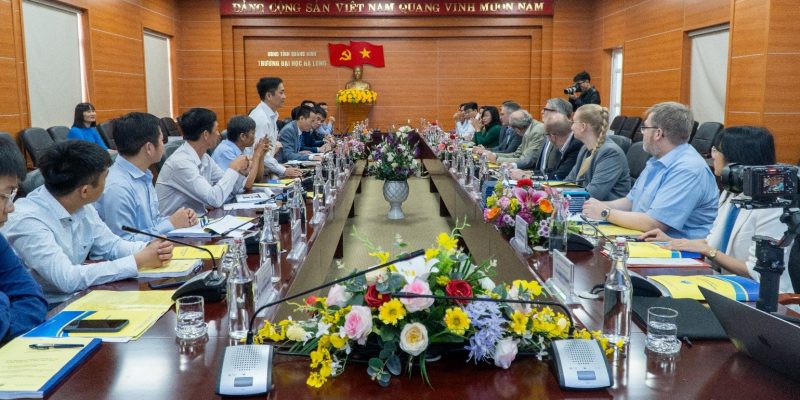
Assoc. Prof. Dr. Nguyen Trung Cang, Vice Rector of Kien Giang University shared the results of the social survey in Kien Giang province.
(2) Identifying suitable approaches for recycling fishnet wastes to reduce ocean pollution;
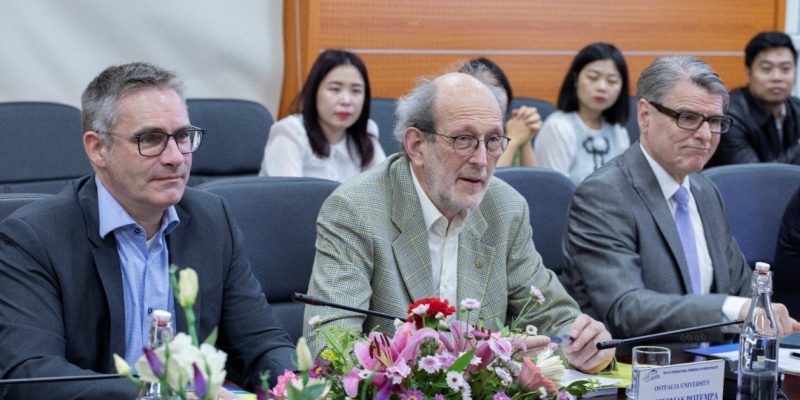
Prof. Dr. Max Ehleben, Director of Recyling Institute of Ostfalia University and Dr. Thomas Potempa, Project Coordinator have presented a strategy to improve the collection and recycling of fishnet wastes
(3) Introducing appropriate fishing gear recycling technology based on the aspect of circular economy
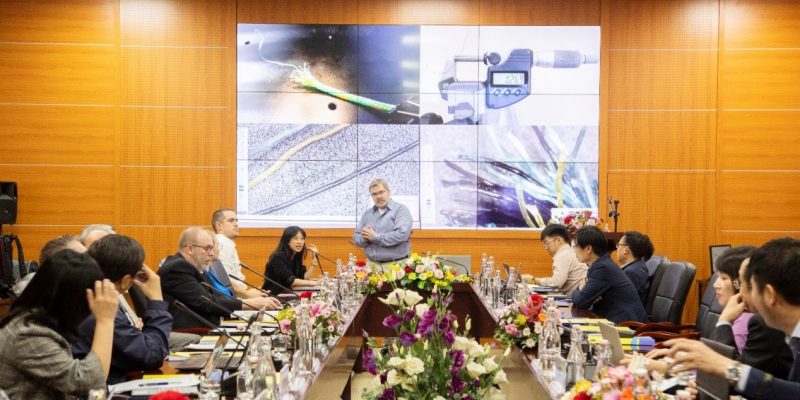
Dr. Welf Graf Von Luxbug-Marten introduced the technological process of recycling fishing gear waste into plastic pellets.
(4) Planning for the project implementation in 2024-2025
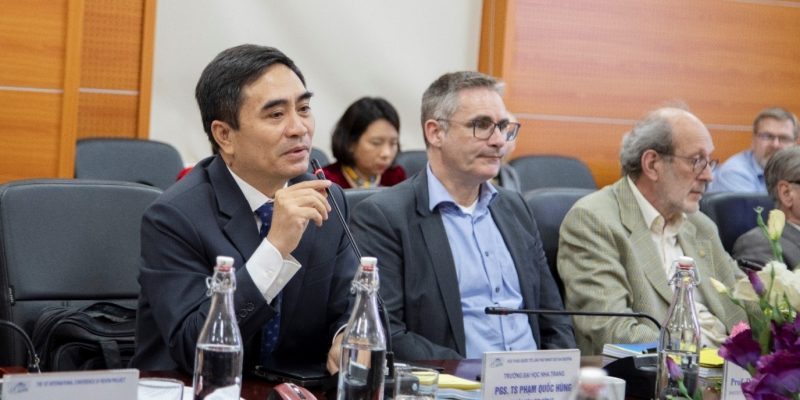
Assoc. Prof. Dr. Pham Quoc Hung, Vice Rector of Nha Trang University discussed the next implementation plans.
Along with the official sessions, the conference also has side activities such as Visiting Ha Long University facilities and Cai Rong Fishing Port (Van Don district, Quang Ninh province)
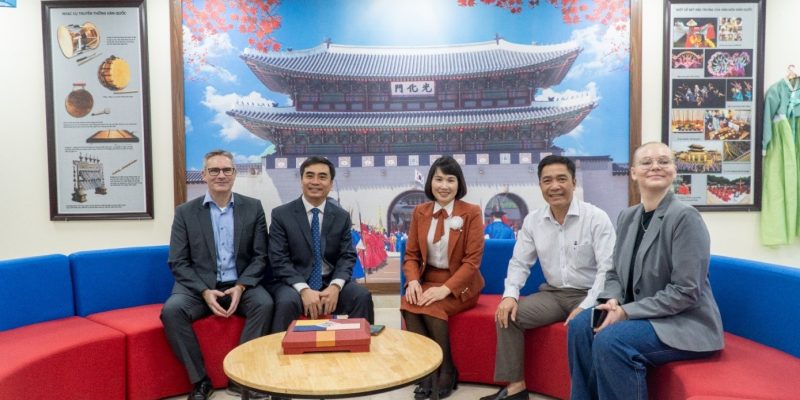
Project member Representatives took photos at the Korean Culture Exhibition of Ha Long University.
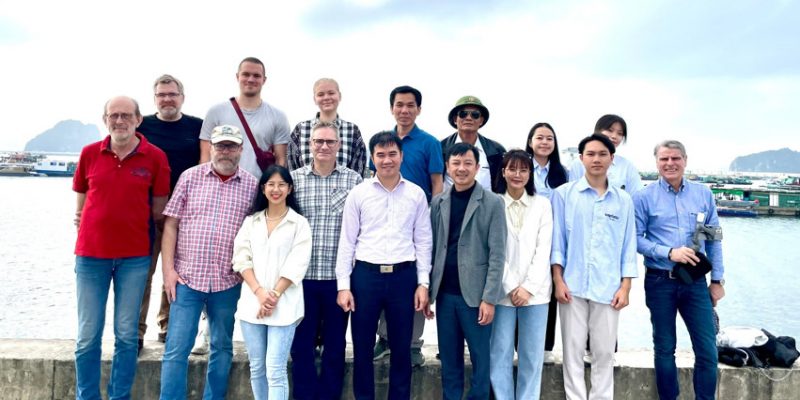
Visiting Cai Rong Port (Van Don District, Quang Ninh Province)
The REVFIN project addressed the following problems:
1) Prevention, Reduction and Recycling of fishing gear discharged into the sea from exploitation and fishing activities in Vietnamese sea waters;
2) Reducing the threats to coastal areas and islands, especially ecologically valuable areas as well as reducing threats to endangered marine species;
3) Raising awareness of fishermen and relevant stakeholders in the fisheries regarding waste disposal of fishing gear and protection of the marine environment.
4) Promoting the markets for recycled materials from waste fishing gear sources, creating a closed value chain and building a circular economy for discarded fishing gear.
TTTV

